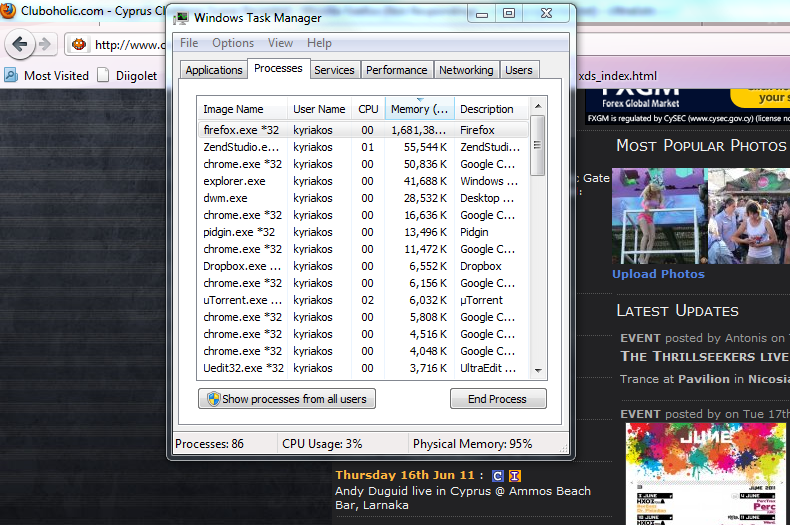I recently had to work on a web project for Cyprus Telecommunications Authority (CYTA) and to my surprise they still use Internet Explorer 6 in all their internal PCs. The default hard drive image installed across all their employee PCs includes Windows XP & Internet Explorer 6. The reason they keep using the now pre-historic version of Internet Explorer is that some of their legacy software still requires it to work properly. What’s annoying about it though is that the particular software is only being used by around 50 people while the rest 2950 employees have to suffer viewing the 1999’s state of the art web.
Apparently if you call the support help desk and beg they can agree to install Firefox for you but actually getting it done may take days.




